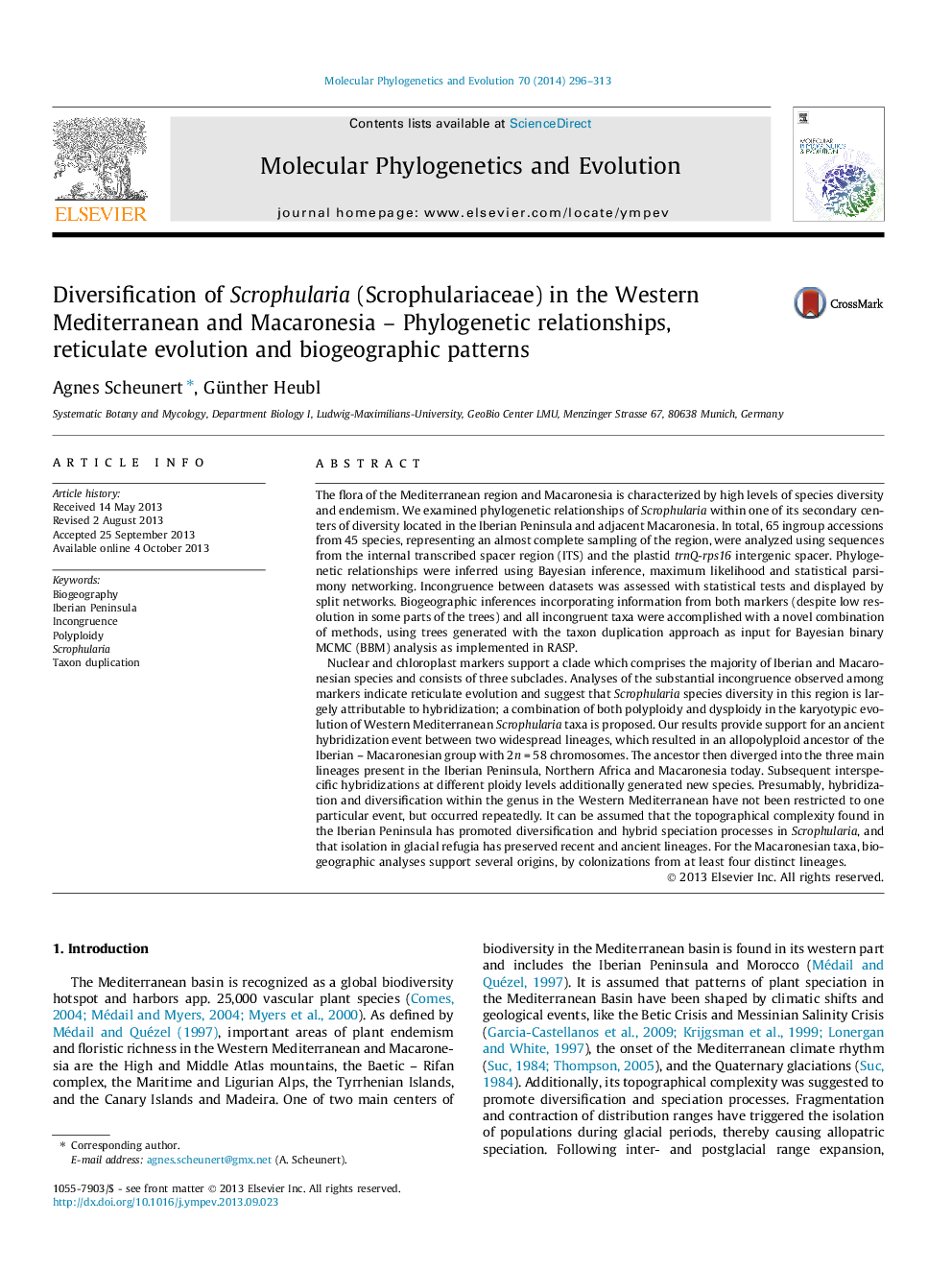| Article ID | Journal | Published Year | Pages | File Type |
|---|---|---|---|---|
| 5919381 | Molecular Phylogenetics and Evolution | 2014 | 18 Pages |
â¢One clade comprises the majority of Iberian and Macaronesian Scrophularia species.â¢Analysis of the substantial incongruence reveals repeated reticulate events.â¢Allopolyploid hybridization promoted species diversity on the Iberian Peninsula.â¢Novel combination of methods allowed biogeographic inference using all available data.â¢Macaronesia has been colonized by at least four Scrophularia lineages.
The flora of the Mediterranean region and Macaronesia is characterized by high levels of species diversity and endemism. We examined phylogenetic relationships of Scrophularia within one of its secondary centers of diversity located in the Iberian Peninsula and adjacent Macaronesia. In total, 65 ingroup accessions from 45 species, representing an almost complete sampling of the region, were analyzed using sequences from the internal transcribed spacer region (ITS) and the plastid trnQ-rps16 intergenic spacer. Phylogenetic relationships were inferred using Bayesian inference, maximum likelihood and statistical parsimony networking. Incongruence between datasets was assessed with statistical tests and displayed by split networks. Biogeographic inferences incorporating information from both markers (despite low resolution in some parts of the trees) and all incongruent taxa were accomplished with a novel combination of methods, using trees generated with the taxon duplication approach as input for Bayesian binary MCMC (BBM) analysis as implemented in RASP.Nuclear and chloroplast markers support a clade which comprises the majority of Iberian and Macaronesian species and consists of three subclades. Analyses of the substantial incongruence observed among markers indicate reticulate evolution and suggest that Scrophularia species diversity in this region is largely attributable to hybridization; a combination of both polyploidy and dysploidy in the karyotypic evolution of Western Mediterranean Scrophularia taxa is proposed. Our results provide support for an ancient hybridization event between two widespread lineages, which resulted in an allopolyploid ancestor of the Iberian - Macaronesian group with 2n = 58 chromosomes. The ancestor then diverged into the three main lineages present in the Iberian Peninsula, Northern Africa and Macaronesia today. Subsequent interspecific hybridizations at different ploidy levels additionally generated new species. Presumably, hybridization and diversification within the genus in the Western Mediterranean have not been restricted to one particular event, but occurred repeatedly. It can be assumed that the topographical complexity found in the Iberian Peninsula has promoted diversification and hybrid speciation processes in Scrophularia, and that isolation in glacial refugia has preserved recent and ancient lineages. For the Macaronesian taxa, biogeographic analyses support several origins, by colonizations from at least four distinct lineages.
Graphical abstractDownload full-size image
